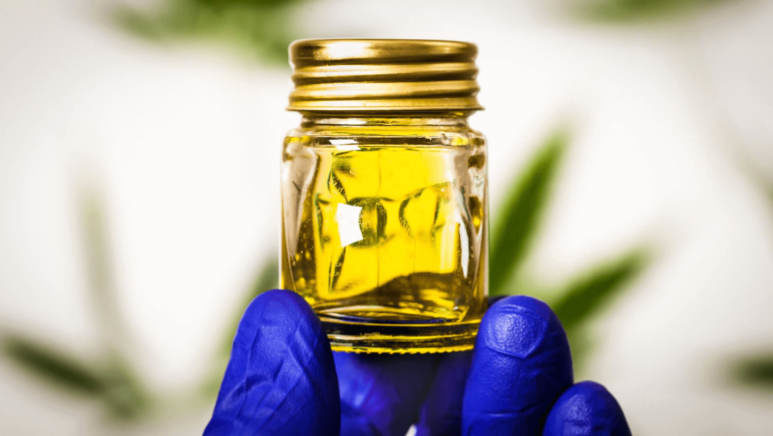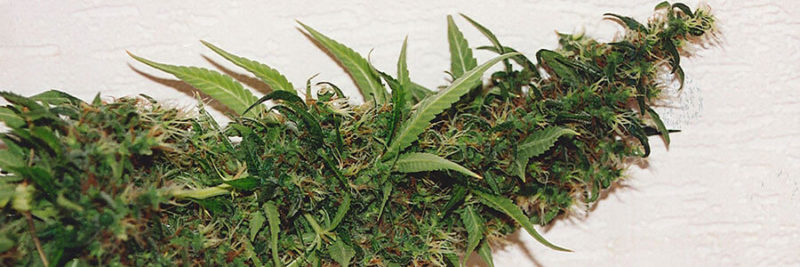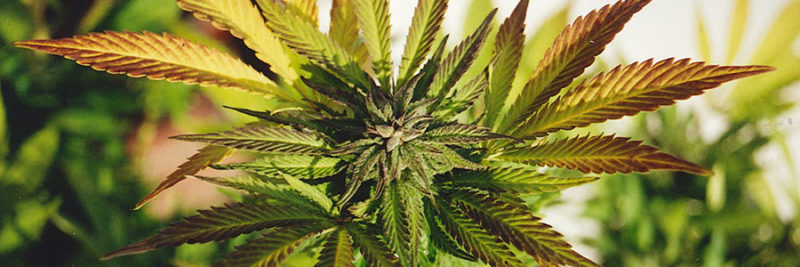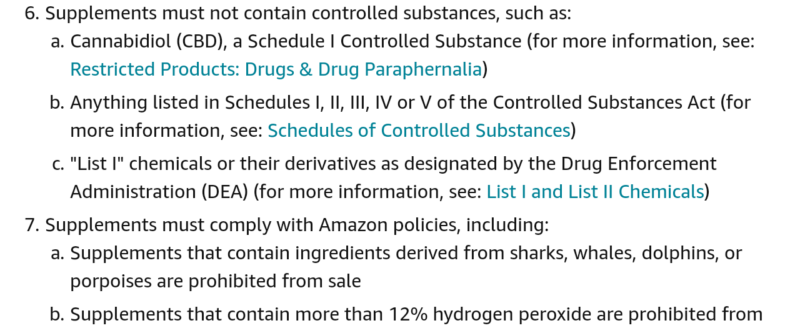Buy One Get One FREE on Everything. Use Code BOGO1
![]()
![]()


The world is in the midst of a CBD oil and hemp oil boom. Many believe that they are good for:
There are a whole lot of other medical conditions as well.
But before you climb on the ‘green oils’ bandwagon, let’s answer the question: Is CBD oil better then hemp oil?


In the CBD and hemp industry, there’s a lot of confusion about cannabis, marijuana and hemp – and their shifting legalities. Many people talk about hemp and marijuana as different strains of cannabis. This is NOT true.
Remember, hemp and marijuana are vernacular names for different plants in the cannabaceae family. They are not distinct plants with official names.
The truth is that Cannabis as a genus has three primary species:
  |   |   |
| Cannabis sativa | Cannabis indica | Cannabis ruderalis |
Cannabis sativa is the most common species of the cannabis plant to grow in the West.
The 2018 Farm Bill legalized industrial hemp. As per the bill, it is now legal to:
Industrialized hemp and its derived products.
Legally, industrialized hemp is defined as:
“Non-intoxicating cannabis with less than 0.3% THC (tetrahydrocannabinol)”
Industrialized hemp is being used rampantly in manufacturing more than 50,000 daily-use products, such as:
Marijuana is defined as the cannabis plant with more than 0.3 percent THC. THC is the infamous psychoactive component that has mind-altering effects. It is THC that gives you a ‘high’ when you smoke weed. The Farm Bill does not protect the use of marijuana.
Some strains of marijuana plants can have up to 30% THC. The legality of marijuana for medical or recreational purposes remains subject to state laws.
Hemp contains more CBD than marijuana. The hemp variety of cannabis produced CBS at 20%+ levels. Marijuana variety of cannabis plants has CBD at 10%+ levels.
The hemp plants and marijuana plants look alike. Inaccurately labeled CBD products add to this confusion. Hence, it is crucial that you buy your CBD oil or hemp oil from a trusted and reliable manufacturer.
CBD is the non-psychoactive isomer of the THC. It is widely used to treat several medical conditions and lifestyle diseases. A number of CBD oils are available for sale in the markets these days. But the CBD industry is still largely unregulated.
There isn’t any difference between hemp-derived CBD oil and marijuana-derived CBD oil. The CBD molecule is the same irrespective of its origin. It means that the pharmacological properties of the CBD do not change with the type of cannabis plant it comes from.
The law treats them differently. Only hemp-derived CBD oils are legal under the 2018 Farm Bill. DEA guidelines make it clear that cannabidiol in itself remains a controlled substance. It is surmised that marijuana-derived CBD oils may contain a higher percentage of THC and cannot be sold freely.
The 2018 Farm Bill only applies to hemp-derived products. Marijuana-derived CBD oils do not fall under this category even if they have 0% THC.
When we refer to CBD oils in this article, we will only talk about hemp-derived CBD oils.


CBD oil is extracted from the leaves, flowers, and stalks of the hemp plant. The cannabidiol is found only in these parts of the cannabis plant. Naturally, it is rich in CBD and may contain trace amounts of THC.
Hemp oil is extracted from the entire hemp plant. It contains all the cannabinoids found in cannabis, including traces of CBD and THC. The most-sought after hemp oil is the organic and vegan hempseed oil. Hemp seeds do not contain CBD or THC and considered fit for human consumption.
In Canada and Australia, hemp oil is considered a medicinal cannabis product. You need a doctor’s prescription to buy it. Hempseed oil is NOT a drug. You do not need to go to the doctor to buy the hempseed oil.
For the purpose of this article, we will refer the hempseed oil as the hemp oil.
CBD oil benefits are mostly associated with the presence of cannabidiol in it. Hempseed oil does not contain CBD but it has plenty of other health benefits. People often confuse between the two. Here, we will study the effects of CBD oil vs hemp oil on the human body.
Cannabidiol is the keyword in the CBD Oil.
CBD oil means that the oil in question has a higher concentration of CBD. It is extracted from hemp specifically cultivated to be high in cannabidiol. It may contain traces of THC but CBD counteracts the effects of THC. Hence, CBD oil or CBD-rich hemp oil is completely safe. It does not get you intoxicated.
CBD is one of the several cannabinoids found in the cannabis plant. It interacts with the endocannabinoid system of the body and helps in controlling disorders related to:
Besides the cannabinoid receptors, the CBD also affects:
Consumption of CBD oil orally or sublingually can reduce one’s dependence on opioid-based medications. Hence, many cancer patients, arthritis patients, and other chronic pain patients use it regularly.
Dopamine controls the cognition and behavior of a person. The use of CBD oil can:
CBD’s influence on brain serotonin levels makes it work like an antidepressant. Hence, CBD oil can potentially be used to treat several neuropsychiatric disorders like depression and anxiety.
The best CBD Oil is the one which:
High-quality CBD oil retains the naturally-occurring phyto-compounds in the industrial hemp plant, including:
The hemp seed oil contains 104% more polyunsaturated fatty acids than fish oil.
Hemp seed is an excellent source of fatty acids like Omega-3 and Omega-6 which are usually found only in fishes. Replacing fish oil with hemp oil is a sustainable way of fulfilling your nutritional needs in a sustainable and environmental-friendly way.
Hemp oil is a popular vitamin supplement. It contains high levels of:
Besides, hemp oil is also a rich source of proteins, antioxidants, and minerals (like potassium and magnesium).
Omega-3 and Omega-6 supplements are good for the brain. They help in fighting:
These fatty acids also:
Flaxseed oil contains a higher level of Omega-3 fatty acid but hempseed oil is better for the following reasons:
No wonder, hemp oil is often referred to as ‘superfood’.
Hemp oil is used as cooking oil, food additive, and for topical application for skin conditions. It is also used in soaps, shampoos, and other cosmetic products.
Today, the market for CBD oils is growing rapidly. Hundreds of producers and sellers supply it to the marketplace. These include people who grow cannabis at home to licensed cannabis producers to pharmaceutical companies. Hence, the quality of CBD oil you use depends on whom you are buying it from.
The solvent used to make the CBD oil can also affect your health. The concentrated extract from cannabis flowers and leaves may be dissolved in:
The manufacturing procedure and solvents used to make the CBD oil can also affect its:
Additional ingredients may also be added to the CBD oil to improve its shelf life.
Since one does not get high on CBD oil, people can easily consume a large dose of CBD oil. Generally speaking, its consumption is well tolerated. It is actively marketed for use by:
Long-terms effect of high-dose CBD are still under study.
Human studies have indicated that a daily dose of 1,500 mg of CBD is well tolerated. WHO review also notes that:
“To date, there is no evidence of any public health-related problem associated with the use of pure CBD.”
It is the unknown composition of CBD products and the possibility of the presence of contaminants in the oil that may put your health at risk. So, it is extremely important to choose the right brand of CBD oil.
When you buy CBD oil, you must:
Side-effects of CBD oil may include:
It may also interfere with anti-epileptic drugs. A study suggested that pregnant women should avoid exposure to CBD oils.


There are no known cases of toxicity due to ingestion of hemp seeds or hemp oil. Hempseed oil only poses a risk if it is spoiled or contaminated.
It has been found that dietary consumption of hemp seeds (or hempseed oil) may reduce blood platelet aggregation. It means that if you take hemp oil with anticoagulants, it may cause more bleeding.
Patients with gastrointestinal disorders or bowel moment disorders should consult the doctor before taking hemp oil. It may cause mild digestive issues like stomach cramps or diarrhea.
Hempseed oil does not contain the same amount of cannabinoids found in the hemp oil (extracted from the whole plant) or the CBD oil.
The best hemp oil and CBD oil manufacturers do not contain THC. You can check on their official website if they offer you the third-party lab results of their products. You can take the oil if its THC level is ‘0’ or ‘Not Detected’ (ND).
Still, it might be a good idea to reveal that you are taking hemp oil or CBD oil before you take the drug test.
CBD Oils and Hemp Oils are available in various flavors. They may also contain fillers like vegetable glycerin or Medium Chain Triglycerides. They also come in different strengths.
If you are using CBD oil, you might want to consult your doctor first. You can experiment with the hemp oil on your own. The best adage in any case is:
“Start Low and Go Slow.”
Though clinical trials on these products are still underway, thousands of arthritis patients and chronic pain sufferers swear by hemp oil and CBD oil for pain management.
Cannabidiol is an expensive ingredient. Hempseed oil is relatively cheaper. Hence, many times, brands mix up the terms to confuse the consumers. They may charge a steeper price for their product by:
The CBD industry is largely unregulated. Hence, its price varies widely. In the US, low-cost CBD oils usually cost 5 to 10 cents per mg. Mid-range CBD oils cost between 11 and 15 cents per mg. Higher-end CBD oils cost 16 cents per mg or higher. It means that one bottle of CBD oil may cost you anywhere between <= $10 to >= $150.
If you are paying a ‘premium’ for the CBD, you must always check the ‘ingredients’ list to see if it has CBD or not.
CBD may be listed as:
Hemp Seed oil is generally listed by its original name or as ‘Cannabis sativa’ seed oil.
If you are searching for CBD oil on Amazon, you will find thousands of sellers. But if you read the company’s selling guidelines, you will find that it prohibits the sale of cannabidiol based products.


So, if you are ordering a CBD product on the site, there is a high probability that you are getting hempseed oil based products.
If you intend to buy CBD oil, Google search is your best bet.
The CBD market is relatively young. Some of the first companies to make CBD oil commercially available started in early 2016. So, it is highly recommended that you:
A good company will always provide you in-depth information about its products, including:
Read about their refund policy and any guarantees they offer closely. Several customers complain that high-profile companies in the market (such as PureKana) delivered expired products or broken bottles. They go on to say that their customer care is so pathetic that receiving a replacement or a refund is very difficult.
Immediately strike out CBD oil or hemp oil brands that are not responsive. The only way to reach an online seller is through customer care. If the company doesn’t care about customer experience, you cannot rely on the quality of the products it offers.
Hemp oil is legal everywhere. But the legality of CBD oil varies from region to region. Depending on where you live, you might want to look for a brand that can deliver the package quickly and discreetly.
In the end, don’t forget to look for the best deals, discount offers, or coupon codes that can help you save money.
![]()
![]()
![]()
![]()
![]()
![]()
We The People Hemp was founded in 2018 to bring quality CBD products and information to the global marketplace.
![]()
![]()